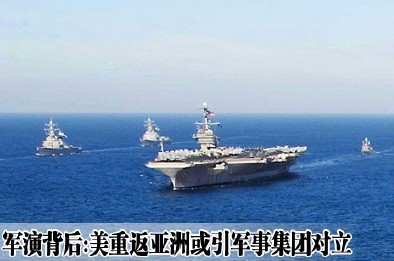
The Obama administration gave this year’s congressionally mandated Pentagon report on the Chinese military a new name and a softer tone. It avoids crass insinuations of evil Chinese intent based on PLA propaganda. It recognizes common and conflicting interests between the U.S. and China while emphasizing the need and desire for dialog and cooperation. Advances in Chinese military capabilities are presented calmly, without hyperbole, as one would expect from a confident, professional defense establishment. “No drama” Obama put his stamp on the Pentagon’s public portrayal of the PLA.
Critics insinuated the president changed the tone and delayed the report to avoid offense. If he did, the Chinese failed to notice.
In the wake of the report, Chinese news and opinion makers are circulating talk of a “new cold war.” Anti-American sentiment in the Chinese blogosphere is reaching new crescendos of nationalist outrage. More thoughtful Chinese analysts are expressing concerns about a new U.S. policy of containment.
The seemingly incongruous Chinese reaction makes sense only when seen in the context of the Obama administration’s campaign to reassert American influence in the Pacific Rim. U.S. Secretary of Defense Robert Gates launched that campaign in June during his address to the annual Shangri-la Asia Security Conference in Singapore:
“It has become clear to us that an effective, affordable, and sustainable U.S. defense posture requires a broad portfolio of military capabilities with maximum versatility across the widest possible spectrum of conflict. Fielding these capabilities, and demonstrating the resolve to use them if necessary, assures friends and potential adversaries alike of the credibility of U.S. security commitments through our ability to defend against the full range of potential threats.”
Those capabilities and the resolve to use them are being put on display in a series of high-profile naval exercises with regional allies and partners. According to Chinese analysts, recent U.S. naval exercises with South Korea brought the weapons of the USS George Washington carrier group within range of the Chinese leadership compound in Beijing. The Obama administration claims the exercises were meant to send a message to North Korea, which is believed to have sunk a South Korean naval vessel in March killing 46 South Korean sailors. The United States pressured China’s leaders to condemn the sinking but they resisted, successfully opposing a U.S.-led effort to pass a United Nations Security Council resolution explicitly blaming the North. Some Chinese officials see the Obama administration’s display of military force close to their coast as an act of retaliation for their lack of support on North Korea at the U.N., even though President Obama rebuffed South Korean attempts to goad the United States into sailing the carrier group into the Yellow Sea.
The U.S. also plans to conduct exercises with the navies of allies and partners in the Association of South East Asian Nations (ASEAN). Chinese observers believe there is cause to believe these exercises are also meant to intimidate them. In remarks after the U.S.-ASEAN ministerial meeting in July, Secretary of State Hillary Clinton implied the United States would use military force to keep the peace in sovereign disputes between China and its neighbors over control of land features and economic rights in the waters of the South China Sea.
The Chinese arms control community, professionally inclined to support dialog and cooperation on security issues, does not like the new nuclear energy agreement between the U.S. and Vietnam announced in Hanoi just before Secretary Clinton’s provocative remarks about the South China Sea. Technical analysts in the Chinese nuclear weapons laboratories believe the terms of the agreement are inconsistent with President Obama’s pledge to control the spread of nuclear weapons. They argue the agreement lacks needed restrictions on the ability to produce nuclear fuels that may one day provide Vietnam with the same latent nuclear weapons capability currently possessed by Japan and sought by South Korea.
One senior Chinese arms controller explicitly linked the U.S.-Vietnam nuclear energy agreement to the U.S. naval exercises. He argued that the two seemingly unrelated developments made it clear to him that the United States was not interested in reassuring China but in threatening and containing it. He added, with obvious frustration, that a dialog on confidence building measures and strategic stability was “out of the question” with a U.S. administration that “says one thing and does another.”
The Chinese aren’t the only ones concerned about the apparent gap between the Obama administration’s words and deeds. Former Assistant Secretary of State Richard Armitage recently told Charlie Rose “I think there’s a little schizophrenia in the administration on China.”
Perhaps. Or the president may be taking a page from Teddy Roosevelt in an effort to force China back to the negotiating table for much-needed talks on nuclear and space arms control. China’s modern history – particularly the history of its nuclear weapons, ballistic missile, and space programs – suggests that an American reprisal of the great power politics of early 20th-century Asia is more likely to fail than to succeed in facilitating a productive dialog with China on strategic stability. But that’s a topic for another day
